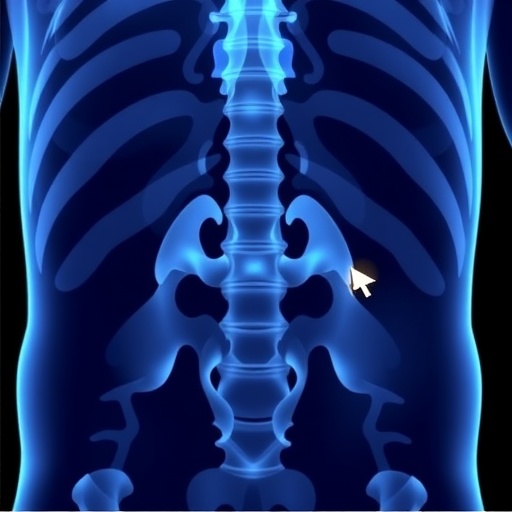Recent advancements in cancer research have provided novel insights into the management and prognosis of bladder cancer, specifically for patients undergoing intravesical Bacillus Calmette-Guérin (BCG) therapy. A groundbreaking study led by Celik et al. investigates the potential of hematologic and urinary markers in predicting tumor recurrence post-treatment, thereby aiming to enhance patient outcomes and tailor individualized therapeutic strategies. The urgency of effectively managing bladder cancer stems from its significant incidence rates, making understanding recurrence predictions imperative for improving patient prognostication.
Bladder cancer is one of the most prevalent malignancies, particularly in older adult populations. The lack of clear clinical pathways for monitoring recurrence post-BCG therapy poses challenges for healthcare professionals. The treatment strategy with intravesical BCG has long been a cornerstone in treating non-muscle-invasive bladder cancer; however, its effectiveness varies widely among patients. The impetus for this research pivots on identifying reliable biomarkers that can guide clinicians in the post-treatment phase, where recurrence surveillance becomes crucial.
In this innovative study, the researchers meticulously quantified various urinary and hematologic parameters among patients who had been treated with BCG. The objective was to correlate these markers with clinical outcomes, predominantly focusing on recurrence rates. The significance of this study lies not only in the validation of these markers but also in its potential to shift the paradigm toward personalized medicine, where treatment and monitoring can be adapted to the individual patient’s risk profile.
The authors employed a robust methodological framework, utilizing comprehensive statistical analyses to establish links between identified biomarkers and the likelihood of recurrence. Through this data-driven approach, they succeeded in pinpointing specific markers that exhibited substantial correlations with recurrence rates, thus reinforcing the evidence that biomarkers can serve as reliable predictors in the therapeutic landscape of bladder cancer.
Among the hematologic markers evaluated, researchers found notable fluctuations in levels of specific blood parameters that seemed to correlate with tumor activity and recurrence probability. Additionally, urinary markers were assessed, with some showing promise for early detection of impending recurrence. This dual approach of utilizing both urinary and hematologic markers provides a broader perspective on the patient’s biological response to BCG treatment.
Furthermore, the study addressed the limitations of traditional surveillance techniques, such as cystoscopy, which, although effective, are invasive and often lead to patient discomfort. In light of these findings, implementing non-invasive biomarker assessments could revolutionize follow-up practices, alleviating the physical and emotional burden on patients while maintaining effective monitoring capabilities.
The findings from Celik et al. underscore an important shift towards integrating biomarkers into routine clinical practice for bladder cancer management. By systematically cataloging and interpreting the relationship between these biomarkers and patient outcomes, the study fuels discourse on the necessity for refining treatment protocols based on individual patient responses.
In consideration of future research directions, the authors acknowledged that larger, multicenter studies will be essential to validate their findings across diverse populations. The quest for optimizing bladder cancer management through biomarkers could not only enhance patient survival rates but also contribute significantly to our understanding of cancer biology and its interactions with therapeutic modalities.
The implications of this study stretch beyond immediate clinical applications; they pave the way for hypothesizing new treatment avenues, possibly combining BCG with other modalities based on unique patient profiles highlighted through markers. As we delve deeper into this era of personalized medicine, the integration of biomarker analytics into cancer care will undoubtedly be a game-changer.
Celik et al. envision a future where the integration of these markers will fundamentally shift how bladder cancer is perceived and treated. By enabling physicians to make more informed decisions, the potential to decrease recurrence rates and improve the overall quality of life for patients becomes significantly more achievable. This research not only shares critical findings but also calls for a collective momentum among oncologists and researchers to embrace this biomarker-driven approach in clinical settings.
Importantly, raised awareness about these findings can encourage patients and healthcare providers alike to explore and prioritize advanced monitoring techniques beyond conventional methods. With continued investigations into the genetic and biochemical underpinnings of bladder cancer, there lies a burgeoning opportunity to refine and personalize every facet of cancer treatment and management.
Ultimately, the work produced by Celik et al. is a significant leap toward harnessing the power of predictive analytics in the fight against bladder cancer. As the medical community continues to embrace these developments, the hope for more effective interventions and better patient care remains resolute, with biomarker studies standing at the forefront of these advancements.
Given the compelling nature of these findings, the scientific community is urged to engage further with this emerging field of research. As protocols evolve and new biomarkers are identified, ensuring rigorous clinical validation will be paramount in transforming theoretical knowledge into clinical innovations that save lives and enhance patient experiences.
With this transformative research, a clear vision emerges; bladder cancer patients can expect more than conventional treatment paradigms. Instead, the future of bladder cancer management is poised to be proactive, emblematic of a healthcare model that emphasizes precision, personalization, and above all, patient empowerment.
Subject of Research: Bladder Cancer – Prediction of Recurrence Using Biomarkers
Article Title: Prediction of recurrence using hematologic and urinary markers in intravesical Bacillus Calmette Guerin treated bladder cancer
Article References:
Celik, M., Polat, M.E., Karaaslan, M. et al. Prediction of recurrence using hematologic and urinary markers in intravesical Bacillus calmette Guerin treated bladder cancer.
Sci Rep 15, 35415 (2025). https://doi.org/10.1038/s41598-025-14974-1
Image Credits: AI Generated
DOI: 10.1038/s41598-025-14974-1
Keywords: bladder cancer, biomarkers, Bacillus Calmette-Guérin, recurrence prediction, personalized medicine




